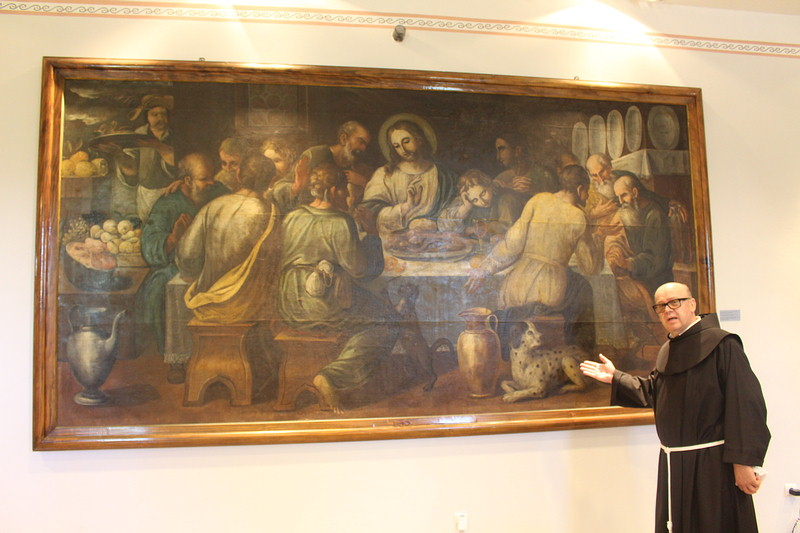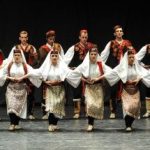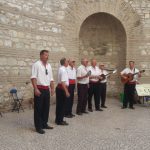As Morski/HTV/Dnevnik/Ivica Djuzel writes, in beautiful little Zaostrog in Central Dalmatia, they decided to further brand their rich cultural heritage. In the monastery of St. Mary, where the great folk poet Andrija Kacic Miosic spent part of his creative life, hangs a painting with the motif of the last supper from the 18th century. On the floor lies a dog which closely resembles the Dalmatian breed as we know it today. To most, this is proof that the famous Dalmatian breed is definitely an autochthonous Croatian breed.
Various treasures have been kept in the monastery of St. Mary in Zaostrog for centuries, and the great Fr. Andrija Kacic Miosic also created works there. For a long time, these invaluable pictures were hidden away from the public and prying eyes. Then the media got involved in the saga.
”One night someone rings the bell. I come down, to find two young Japanese people saying they’d like to see a picture. I asked them if they wanted to see the whole convent. They replied that they were only interested in the picture,” Fr. Branko Brnas, the vicar of the Franciscan monastery, begins when in conversation with HRT.
Inside hangs the aforementioned painting with the motif of the last supper from the 18th century, proof is that the famous Dalmatian breed is an autochthonous Croatian breed. Oddly enough, it took a long time to admit that.
The locals then decided to roll up their sleeves and reveal this priceless piece of cultural treasure to tourists and, in accordance with the possibilities, brand the whole place in black and white to resemble this four-legged, fetch-playing global ambassador of Dalmatia. They are aware of the wild popularity of the Dalmatian breed around the world, and they started this branding back last summer.
”We’ve now launched a year-round project called ”Dalmatian Dog Image In House Village’’. We’re continuing with our ”Black and White” event during the summer in accordance with the epidemiological situation and we want to open the visitor centre after this season,” announced Bozena Delas.
Local authorities will apply for financial support from available European Union (EU) funds, and local artists and designers also joined in. The bus stops were painted to look like the Dalmatian breed’s unusual coat first. The ”Dalmatinac” (Croatian for Dalmatian) sign will be designed in cooperation with the Faculty of Graphic Arts in Zagreb. The director of the Gradac Tourist Board, Davor Andrijasevic, believes that the Dalmatian’s ties to its place of origin are often wrongly forgotten about.
In the municipalities of Gradac and Zaostrog, where 800 thousand overnight stays are realised, they have their own vision of tourist development. The strange and often monotonous days of the pandemic-dominated era awakened some creativity. Now, the first guests have begun to return, with 20 percent better results are expected this summer than last year.
For more, follow Made in Croatia.











